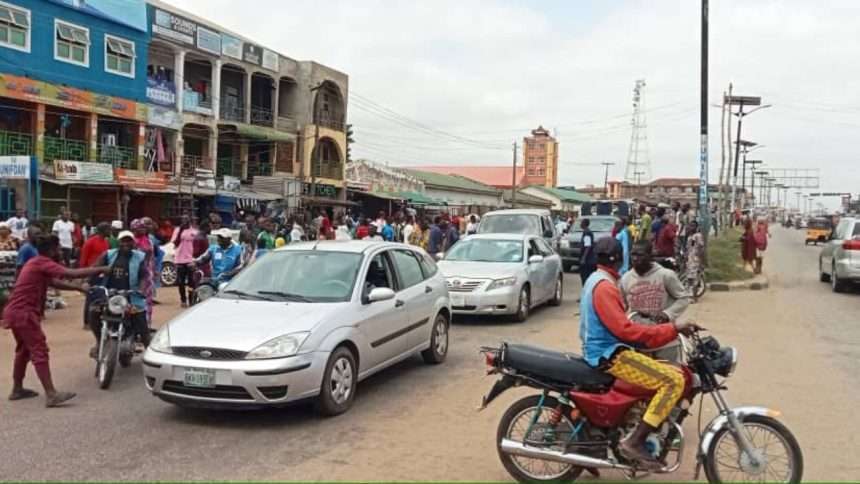
Ilorin Transporters Protest Fuel Price Hike, Leaving Thousands Stranded
Ilorin, the capital of Kwara State, was unusually quiet today as commercial transporters, including tricycle operators, launched a major protest against the recent hike in fuel prices. The protest left thousands of commuters stranded, highlighting the immediate impact of economic policies on everyday life.
The demonstration blocked key routes like Sango Road and the Post Office axis starting early Thursday morning. Tricycle operators, locally known as “Keke Napep” riders, were at the forefront, expressing frustration over the steep fuel costs that have drastically reduced their earnings.
Trending Now!!:
Fuel prices in Ilorin have reportedly surged to between N1,100 and N1,200 per liter, well above the official N895 rate set by the Nigerian National Petroleum Corporation (NNPC). Transporters argue that these costs make operating nearly impossible without raising fares significantly, a move that would further burden the public.
Many tricycle operators voiced their concerns, with one lamenting that the higher fuel prices have driven away customers who cannot afford the new fares, leaving operators barely covering their fuel expenses. There were calls for the government to cap fuel prices at N600 per liter to keep their operations sustainable.
In response, the Kwara State government deployed free buses to help alleviate the transport crisis, though this measure only partially addressed the immediate needs of residents, many of whom still struggled to navigate the city.
The protest also affected local businesses, with some shop owners closing early to avoid potential escalation and looting, underscoring the wider economic impact of the fuel price increase.
This strike in Ilorin reflects a broader discontent across Nigeria, where fuel price hikes frequently trigger protests due to their direct effect on transportation costs and, subsequently, on the cost of goods and services. The government’s removal of fuel subsidies, intended to reduce public debt and redirect funds to sectors like health and education, has faced pushback from sectors like transportation, which are directly affected.
As the day went on, there were no signs of the protest easing, with transporters calling for government intervention to stabilize fuel prices. The situation in Ilorin exemplifies the challenges faced by many Nigerian cities, where economic policies have immediate and direct effects on the livelihoods of the working class.


